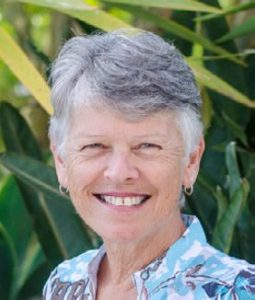Hilary Star Foged (LEAD) writing of her own learning and experience from engaging with mana whenua.
“Start with a blank piece of paper.” This is one of the most challenging statements and yet profound requests I have heard from mana whenua when I was on Aotea, Great Barrier Island last year at a workshop, coordinated by ANCAD, where the local community met to talk about Te Tiriti partnership in action.
“When you come to us, please come with a blank piece of paper.”
This request was challenging because this is not the way we Pākehā tend to work. We mostly seek affirmation of our plans and objectives when they are well down the track and want mana whenua to support our intentions, especially if there is a requirement from funders to engage with iwi in support of project planning and funding.
To start genuinely with a blank piece of paper is a significant contribution to engagement in partnership with mana whenua; to begin from the beginning and to work out why and what and how, together. We have few examples of this being the experience for mana whenua and ourselves and so it is difficult for us to envisage what this really looks like in practice, but there are some significant key aspects to understand.
Firstly, and most importantly, is that this engagement needs to be relationship-based. Not just an instant meeting but building relationship over time so that trust and understanding have time to grow.
Who is mana whenua? The indigenous people (Māori) who have historic and territorial rights over the land. It is important to ensure we are approaching and building relationship with the appropriate people. That is building relationships with mana whenua from a place of deep respect, openness to learning and with an authentic desire to find a mutual way forward. Mana whenua have knowledge and insights that we as Pākehā can greatly learn from and to inform whatever decisions are to be made together.
The second significant aspect is that it takes time. Time that we often feel we don’t have, as we act in response, for example, to requirements from funding and maybe needing to report back to funders within set timeframes.
Another key aspect is resourcing. Often the scale of what is needed is under-resourced and very often budgeting for consulting with and working alongside mana whenua is not included. Resourcing that provides for the time and wisdom from mana whenua.
I experience ‘starting with a blank piece of paper’ not only challenging but a genuine invitation to robust conversation that leads to deeper understanding of each other and a strong foundation to work out what is needed and what is possible.
What does this ask of us? Firstly, to recognise and acknowledge the depth of how the dominant culture in Aoteaora has been informed and impacted by colonisation. Then, to be informed about our history as a nation which continues to play out in how we do things. Next, to honestly acknowledge how our country’s systems, processes, law, health, education, etc., have all been strongly founded and organised from a foundation of colonisation, where western perspective and values have often resulted in damaging harm to Māori communities, where they have experienced disproportionate poverty, alienation, inequity and imbalance.
It takes intentional action to change this power imbalance and asks us to enter into engagement with mana whenua, without preconceived and fixed ideas about how we consult, discuss and come to decisions together. It may mean some of the processes and current ways of doing things need to change to enable a true partnership going forward to be possible.
Having a ‘blank piece of paper’ calls for an openness to the wisdom and perceptions of mana whenua about what is needed and how it will come into being. There are projects and communities where there is now an openness to growing understanding of how this all works in practice, but for many of us, it is hard to conceive what true equity and partnership when engaging with mana whenua really looks like, without having experienced it.
I have found a genuine approach to learn, to engage honestly and authentically has been met in the most part by a generous spirit towards building relationship. For me, it has been a humbling and deeply learning experience to be in the generous space, making mistakes and working with tikanga guiding our conversations, our behaviours, and setting goals for change that will benefit everyone.
When we recognise and acknowledge our different ‘paddles’ and ‘paddling styles,’ and work out how we will develop a shared direction and vision, the waka or canoe then has greater potential for following an agreed path to a destination that has been envisaged together.
As so beautifully expressed in this whakatauki,

Kaua e rangiruatia te hāpai o te hoe; e kore tō tātou waka e ū ki uta.
Do not lift the paddle out of unison or our canoe will never reach the shore.